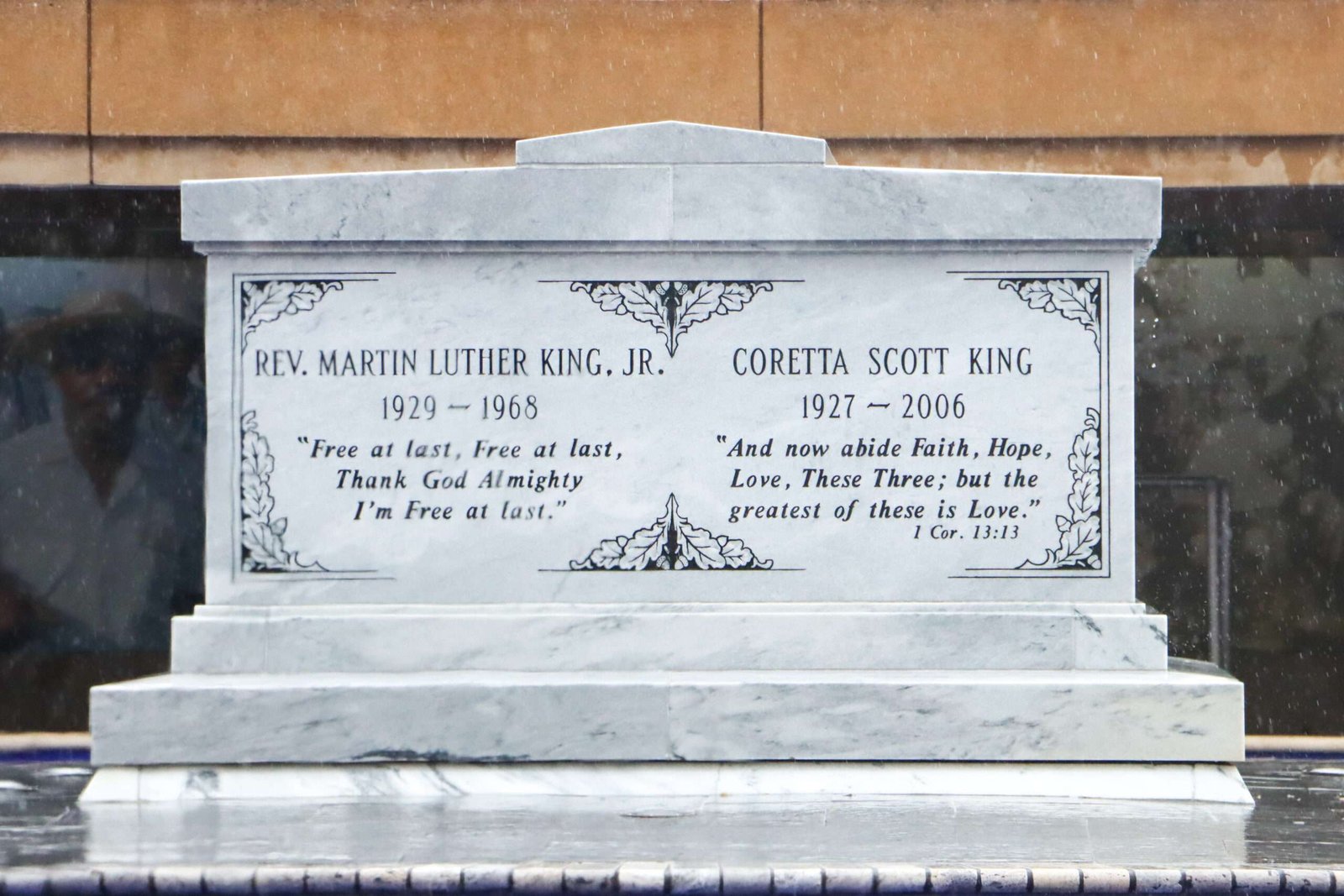
By Milton Kirby | Atlanta, GA January 15, 2025
Today marks the anniversary of the birth of Dr. Martin Luther King Jr., one of the most transformative figures in American history. Born Michael Luther King on January 15, 1929, in Atlanta, Georgia, he later adopted the name Martin, aligning with his lifelong mission inspired by faith and justice.
Early Life and Education
From a young age, Martin Luther King Jr. displayed remarkable intellect and drive. Skipping the 9th and 12th grades, he entered Morehouse College at just 15 years old and earned a bachelor’s degree in sociology by 19. Despite his precocious achievements, his life was not without hardship. At the age of 12, devastated by the death of his grandmother, he leaped from a second-story window in despair. Thankfully, he survived the fall, and this moment became part of the complex journey that shaped his character and resilience. This event is often mentioned to highlight the emotional struggles he faced in his early years before becoming the renowned leader of the Civil Rights Movement.
Path to Leadership
King’s upbringing in a deeply religious family, with his father and grandfather serving as Baptist ministers, instilled in him a sense of justice and faith. He was exposed to the inequities of segregation from a young age and was taught the value of standing up against injustice.
Martin Luther King Jr. became involved in the Civil Rights Movement through a combination of personal conviction, religious leadership, and circumstances that thrust him into the forefront of the struggle for racial equality.
His academic journey further shaped his thinking. While studying at Morehouse College, Crozer Theological Seminary, and Boston University, he encountered writings on nonviolence, particularly those of Mahatma Gandhi, which deeply influenced his philosophy of peaceful resistance.
In 1954, at the age of 25, King became the pastor of Dexter Avenue Baptist Church in Montgomery, Alabama. It was here that he stepped into the national spotlight, leading the Montgomery Bus Boycott after Rosa Parks’ arrest in 1955. Parks was arrested for refusing to give up her seat on the bus to a white passenger.
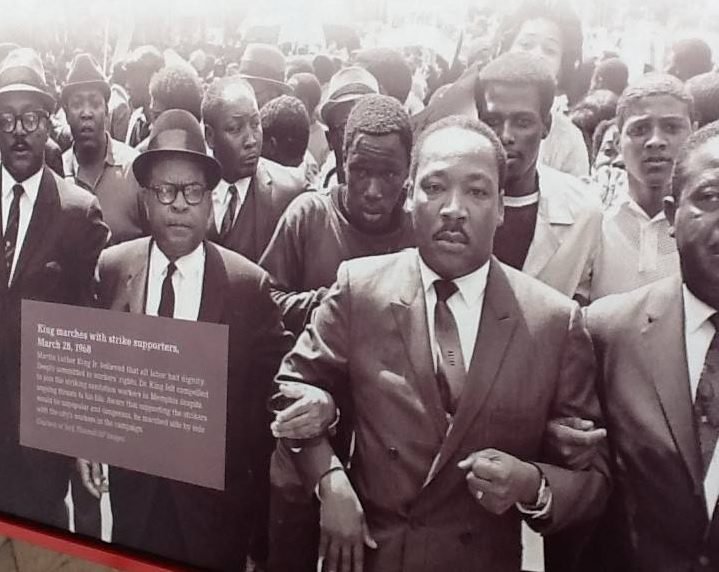
King was chosen as the leader and spokesperson for the newly formed Montgomery Improvement Association due to his strong oratory skills, respected position in the community, and relatively new arrival in Montgomery, which allowed him to avoid being tainted by local political divisions.
The boycott lasted over a year and ended with a Supreme Court decision declaring segregation on public buses unconstitutional. This success brought King national recognition as a leader of the Civil Rights Movement.
The Civil Rights Movement
In 1957, King co-founded the Southern Christian Leadership Conference (SCLC), amplifying his efforts to challenge racial injustice across the South. Through campaigns in Birmingham, Selma, and beyond, King’s nonviolent approach achieved significant victories, including the Civil Rights Act of 1964 and the Voting Rights Act of 1965.
King’s commitment to nonviolent resistance as a means of achieving social and political change was central to his leadership. He believed that love, justice, and moral authority could overcome hate and injustice.
King played pivotal roles in key events, such as the March on Washington in 1963, where he delivered his iconic “I Have a Dream” speech, and the Selma to Montgomery marches in 1965, which led to the passage of the Voting Rights Act.
King’s leadership in the Civil Rights Movement was marked by his ability to inspire and mobilize people through his powerful speeches and unwavering commitment to justice. His efforts led to significant legislative and social changes, including the Civil Rights Act of 1964 and the Voting Rights Act of 1965.

Dr. Martin Luther King Jr. was assassinated on April 4, 1968, in Memphis, Tennessee. He was shot while standing on the balcony of the Lorraine Motel, where he was staying during a visit to support striking sanitation workers. The tragic event occurred just as King was leading efforts for economic justice and workers’ rights. His death sparked widespread mourning and further galvanized the Civil Rights Movement.
A Legacy Memorialized
The quest to make Martin Luther King Jr.’s birthday a national holiday was primarily championed by Coretta Scott King, Martin Luther King Jr.’s widow, along with other civil rights leaders and activists. After her husband’s assassination in 1968, Coretta Scott King worked tirelessly to ensure that his legacy and contributions to civil rights were officially recognized by the federal government.
In 1979, she and other advocates began a campaign to establish a national holiday in honor of King. This effort gained widespread support over the years, and it was introduced in Congress by Rep. John Conyers and Senator Edward Kennedy.
It wasn’t until 1983 that President Ronald Reagan signed the legislation into law, officially designating Martin Luther King Jr. Day as a national holiday, which was first observed on January 20, 1986. However, it wasn’t immediately recognized by all states; it took several years for all states to adopt the holiday, with South Carolina being the last to officially recognize it in 2000.
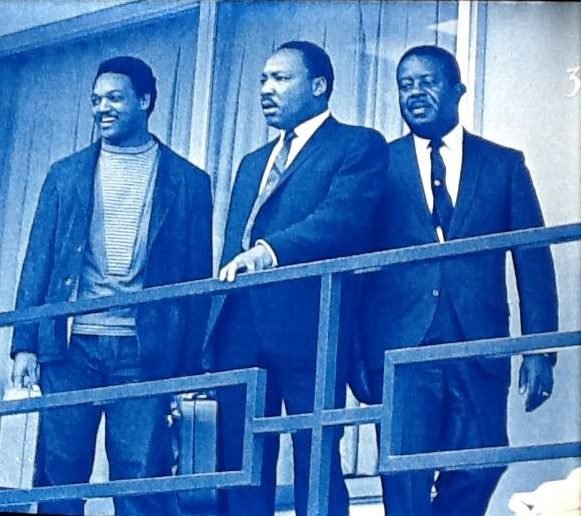
Family and Legacy
Dr. Martin Luther King Jr. and his wife, Coretta Scott King, had four children:
Yolanda Denise King (1955–2007) – The eldest child, Yolanda was an actress, public speaker, and advocate for social justice.
Martin Luther King III (born 1957) – The eldest son, Martin Luther King III is an activist and community leader, having served as president of the Southern Christian Leadership Conference (SCLC).
Dexter Scott King (1961 – 2024) – The second son, Dexter was an activist and former president of the King Center, an organization dedicated to promoting the principles of nonviolence and advancing civil rights.
Bernice Albertine King (born 1963) – The youngest child, Bernice is an ordained minister and has been a prominent advocate for social justice and human rights. She is currently the CEO of the King Center.
The King Papers Project
During his lifetime, King wrote numerous letters, speeches and sermons. These documents are infamously called “The King Papers.”
The King Papers Project was initiated by the King Center and the Stanford University King Institute, and its goal is to publish a complete and accessible record of Dr. King’s life and contributions.
The project includes several volumes that span Dr. King’s life, beginning from his early years as a student and continuing through his leadership in the civil rights movement and his tragic assassination in 1968. These volumes contain not only his most famous speeches and writings but also personal correspondence, planning documents, and writings that provide insight into his thinking and strategic approach to issues like racism, social justice, and nonviolence.
In addition to the printed volumes, the King Papers also include digitized materials, which are available for public access and research. This collection is invaluable for scholars, educators, and anyone interested in understanding the full scope of Dr. King’s thoughts, actions, and impact on the civil rights movement and beyond.
Exploring His Life and Work
The story of Dr. King’s life can be found and studied a number of museums around the country including but not limited to:
1. The National Civil Rights Museum (Memphis, Tennessee)
- The National Civil Rights Museum is located at the Lorraine Motel, where Dr. King was assassinated in 1968. The museum offers an extensive collection of artifacts, exhibits, and multimedia presentations documenting the American civil rights movement, including a significant focus on Dr. King’s leadership. Visitors can see items related to his life and activism, including his famous speeches and personal items.
2. The King Center (Atlanta, Georgia)
- The Martin Luther King Jr. National Historical Park in Atlanta includes the King Center, which was founded by Dr. King’s widow, Coretta Scott King. The King Center houses exhibits about Dr. King’s life, his philosophy of nonviolence, and the broader civil rights movement. The Ebenezer Baptist Church, where Dr. King preached, is also part of the park, and the Freedom Hall within the King Center contains artifacts such as his Nobel Peace Prize.
2. The National Center for Civil and Human Rights (Atlanta, Georgia)
- The National Center for Civil and Human Rights isone of the most magnificent places to not just learn about the Civil Rights Movement but to actually experience it yourself. Sit at the lunch counter exhibit and see, hear and feel what you may have experienced if you had been a protestor at one of the many sit-ins throughout the South. This museum is home to some of the most dramatic, sobering, and incredibly realistic exhibits on the Civil Rights Era.
3. The Smithsonian National Museum of African American History and Culture (Washington, D.C.)
- The National Museum of African American History and Culture at the Smithsonian features extensive exhibits on Dr. Martin Luther King Jr. and the civil rights movement. Items from his life, including his Bible, robes, and other personal artifacts, are displayed. His leadership and influence in the movement are detailed through interactive exhibits and multimedia presentations.
4. The Civil Rights Memorial Center (Montgomery, Alabama)
- The Civil Rights Memorial Center, operated by the Southern Poverty Law Center, commemorates the lives of individuals who died during the Civil Rights Movement, including Dr. King. The Civil Rights Memorial, designed by architect Maya Lin, features a reflective surface inscribed with the names of martyrs, including Dr. King. The museum has exhibits on King’s life, his commitment to nonviolence, and his impact on civil rights.
5. The Alabama State Capitol (Montgomery, Alabama)
- While not a traditional museum, the Alabama State Capitol is historically significant in the context of the civil rights movement. It was the site of the Selma to Montgomery marches, and there are exhibits within the Capitol and nearby museums that reflect on Dr. King’s leadership during this pivotal moment in history.
6. The Library of Congress (Washington, D.C.)
- The Library of Congress holds a large collection of materials related to Dr. Martin Luther King Jr., including manuscripts, letters, and papers. The library often showcases exhibitions about his life and work, and many of his speeches and writings are accessible through their online archives.
7. The Detroit Historical Museum (Detroit, Michigan)
- The Detroit Historical Museum features exhibits about the history of the Civil Rights Movement, including a section dedicated to Dr. Martin Luther King Jr. and his connection to the struggles for equality in Detroit and the broader U.S.
8. The Boston University Mugar Memorial Library (Boston, Massachusetts)
- The Boston University Mugar Memorial Library holds the Martin Luther King Jr. Papers Project archives. This extensive collection includes Dr. King’s writings, speeches, and letters, which are essential resources for understanding his thoughts.
As we commemorate the life of Dr. Martin Luther King Jr. on what would have been his 96th birthday, his message of love, equality, and nonviolent resistance remains as relevant as ever.


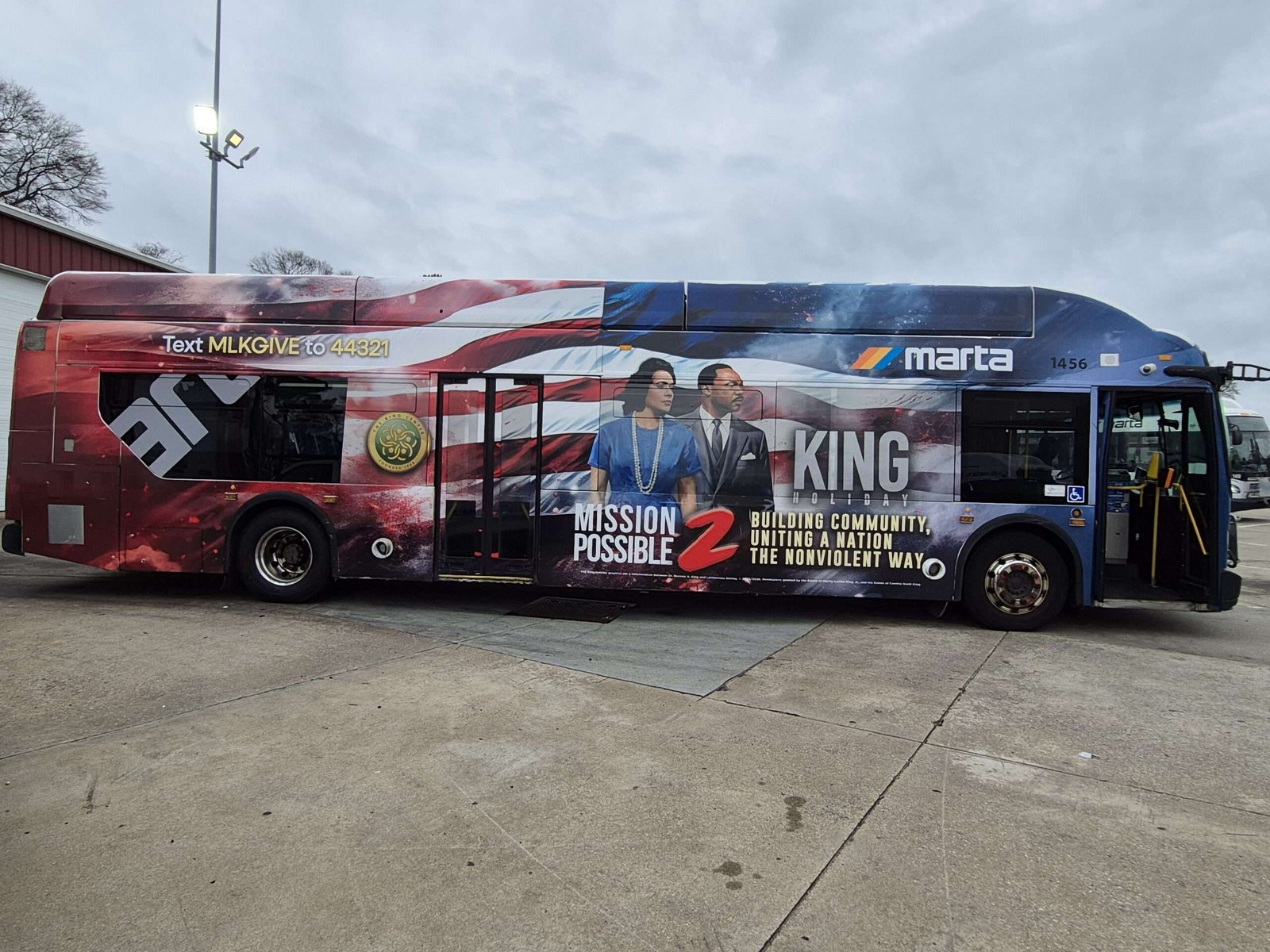

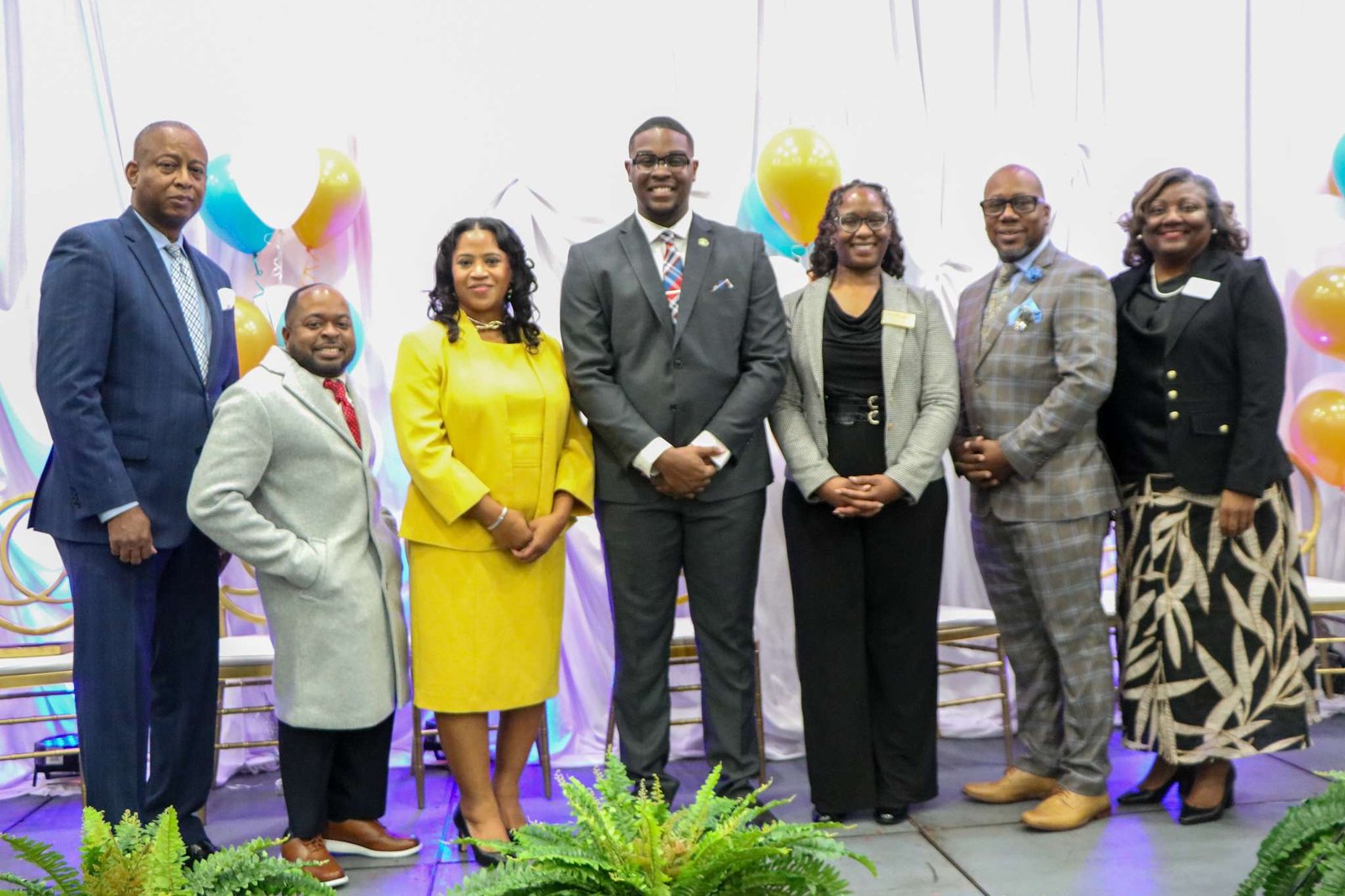



This article succinctly capsulated much of Dr King’s life in a few paragraphs. Because I already knew most of what I just read, it was a great birthday treat to be reminded.
George, we know that you have many options for getting news and information. We sincerely appreciate you taking the time to read The Truth Seekers Journal. We hope that you will subscribe and allow our publication to come into your email inbox on a regular basis.
Thanks for the reminder. This was good for me, lest I forget.